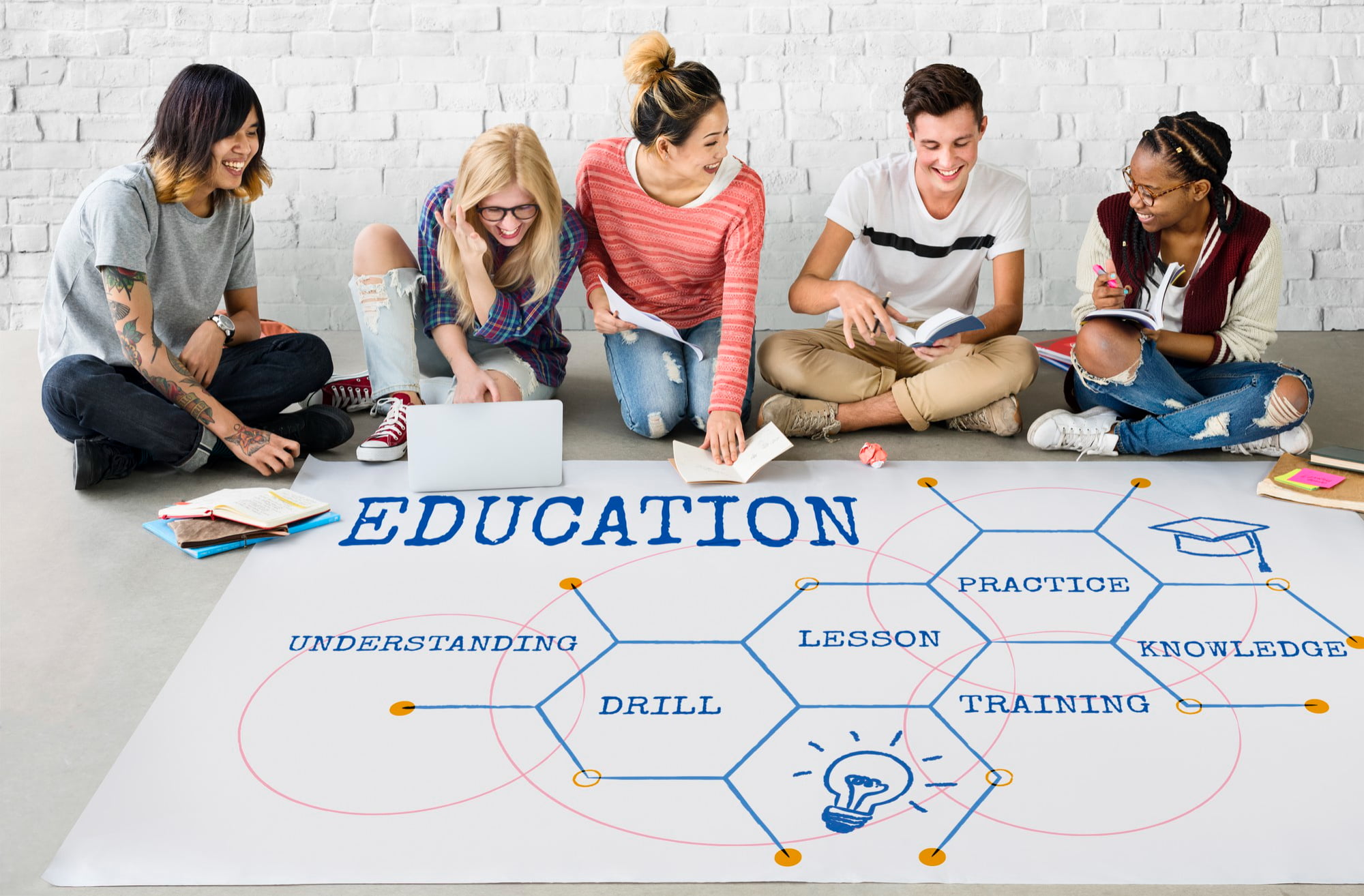


Education has a fundamental role to play in equipping students with the required knowledge, skills, and attitudes that will enable them to excel in their chosen professions. As the world of work undergoes constant changes, it becomes crucial for students to be prepared to confront the challenges they will encounter in their future careers.
This blog will delve into the significance of education in preparing students for the workforce and examine some of the primary approaches that can be employed to ensure that students are adequately equipped to confront the demands of the contemporary workplace.
Soft skills, such as communication, teamwork, problem-solving, and adaptability, are crucial in the modern work environment, and educators play a crucial role in helping students develop them. While technical skills and knowledge are important, they alone are not enough to ensure success in the workforce.
Effective communication is vital for employees to clearly and persuasively communicate their ideas and collaborate effectively with others. Teamwork is also essential in cross-functional teams that are becoming increasingly common.
Problem-solving is critical for identifying, evaluating, and implementing effective solutions, while adaptability is necessary for quickly adapting to new technologies, business practices, and changing circumstances.
Project-based learning, group work, and leadership and mentoring opportunities are effective strategies for developing soft skills in students. Project-based learning allows students to work collaboratively on real-world problems, developing their problem-solving, communication, and teamwork skills.
Group work provides opportunities to collaborate and develop communication, teamwork, and conflict-resolution skills. Leadership and mentoring opportunities allow students to develop adaptability, problem-solving, communication skills, and the ability to work effectively with others.
Technical skills and knowledge are essential, but soft skills are equally crucial for success in the modern work environment. Educators can help students develop these skills through various strategies, allowing them to be better prepared to succeed in today’s competitive and ever-changing work environment.
Technological change is revolutionizing many industries and creating new opportunities for growth and innovation at a rapid pace. As a result, educators must prepare students with the technological skills they need to succeed in the workplace by integrating technology into the classroom, training them in the use of relevant software and tools, and offering opportunities for hands-on experience with cutting-edge technologies.
One way to integrate technology into the classroom is through digital tools and resources, such as online textbooks, interactive multimedia, and virtual simulations. These tools can help students better understand complex concepts and develop critical thinking skills while providing a more engaging and interactive learning experience.
Another essential strategy is to train students in the use of relevant software and tools, including software applications commonly used in the workplace such as Microsoft Office, Adobe Creative Suite, and various project management and collaboration tools. By providing students with the skills to use these tools effectively, educators can help them meet the demands of the modern workplace.
To prepare students for technological change, it is also essential to provide them with hands-on experience with cutting-edge technologies, such as virtual and augmented reality, 3D printing, and robotics.
However, teaching students how to use technology is not enough. Educators must also help students develop critical thinking and problem-solving skills necessary for adapting to new technologies as they emerge. This can include teaching students how to analyze complex problems, evaluate potential solutions, and develop creative and innovative solutions.
By providing students with the necessary skills to adapt to technological change, educators can ensure that they are prepared for the demands of the modern workplace and equipped to succeed in the jobs of the future.
The process of globalization is rapidly increasing, making it crucial for students to be equipped with the necessary skills to succeed in an international context. Educators play a vital role in helping students develop cross-cultural competencies, which include intercultural communication skills, an understanding of cultural differences, and the ability to work effectively in diverse teams. To achieve this, educators should provide opportunities for intercultural exchange and exposure to diverse perspectives.
One effective approach to developing cross-cultural competencies is through study abroad programs. These programs offer students the chance to live and study in a foreign country, exposing them to a different culture and helping them understand cultural differences. Through immersion, students learn to navigate cultural norms, improve their intercultural communication skills, and gain a global perspective that is necessary for success in today’s interconnected world.
International internships also provide valuable cross-cultural experience. By working in a foreign country, students can gain practical experience in an international setting, establish a network of contacts, and learn to navigate cultural differences in a professional environment. These experiences help students develop the skills they need to succeed in a globalized workplace.
Cross-cultural collaboration projects are another way to enhance cross-cultural competencies. These projects require students from different cultural backgrounds to work together in solving real-world issues. This collaboration helps students learn to communicate effectively across cultural differences, appreciate diverse perspectives, and develop the skills needed to work effectively in diverse teams.
By offering these opportunities, educators can help students develop the cross-cultural competencies necessary for success in an interconnected world. Effective communication across cultural differences, understanding and appreciation for diverse perspectives, and the ability to work effectively in diverse teams are all essential for success in today’s globalized workplace.

Educators face a significant challenge in addressing the skills gap, which refers to a mismatch between the skills that employers seek and the skills that job seekers possess. To tackle this issue, educators need to work closely with employers to identify in-demand skills and develop training programs and curricula that align with these skills. Additionally, educators should provide students with opportunities for experiential learning, such as co-op programs, internships, and apprenticeships, enabling them to acquire hands-on experience in their respective fields.
Collaboration with employers helps educators obtain insights into specific skills and competencies that are vital for success in the workplace. This involves working with industry associations, surveying, and analyzing labor market data to identify emerging trends and skill gaps. With this information, educators can modify their curricula and training programs to ensure they equip students with the skills needed to thrive in their preferred fields.
Experiential learning opportunities such as internships, co-op programs, and apprenticeships can help bridge the skills gap. These programs provide students with practical experience in real-world settings, allowing them to develop practical skills and a better understanding of workplace demands. By collaborating with employers to establish these programs, educators can ensure that students gain in-demand skills and competencies.
Moreover, educators must provide students access to the latest technologies and tools used in the workplace. This includes training in project management tools, software applications, and other technologies relevant to their preferred fields. By introducing students to these tools, educators can help bridge the skills gap and ensure that students are well-equipped to meet the demands of the contemporary workplace.
Encouraging entrepreneurship among students plays a crucial role in promoting economic growth and innovation. Educators can facilitate this by providing students with the necessary resources and support.
One effective approach is teaching students the basics of entrepreneurship, such as identifying market opportunities, conducting market research, and creating a business plan, while also facilitating mentorship and networking opportunities with experienced entrepreneurs.
In addition to practical skills, educators can foster a culture of innovation and risk-taking in the classroom, encouraging students to think creatively and develop innovative solutions to real-world problems. Collaborative projects can also help to develop teamwork skills, which are important for entrepreneurship.
Providing students with access to funding and resources, such as connecting them with investors, offering access to co-working spaces and incubators, and providing financial support for their business ideas, can remove financial barriers that often prevent aspiring entrepreneurs from pursuing their ideas.
Finally, promoting a growth mindset among students is essential for cultivating an entrepreneurial mindset, encouraging students to embrace challenges and view failures as opportunities for growth and learning. This instills a sense of resilience and perseverance, which is essential for success in entrepreneurship.
Educators can help to cultivate an entrepreneurial mindset by providing students with opportunities to develop their own business ideas, fostering a culture of innovation and risk-taking, providing access to funding and resources, and promoting a growth mindset while teaching practical skills and knowledge. These efforts equip students with the tools they need to pursue their entrepreneurial dreams.
In conclusion, education is a key factor in shaping the workforce of the future. It is important for educators to recognize the changing nature of work and the skills required to succeed in the modern economy. Soft skills such as communication, teamwork, and problem-solving are just as important as technical skills, and educators must ensure that students are equipped with both.
Additionally, educators must work closely with employers to address the skills gap and provide students with opportunities to gain practical experience in the workplace. Encouraging entrepreneurship is also important for promoting innovation and economic growth. By collaborating with stakeholders and keeping up with technological advancements, educators can help to ensure that students are well-prepared for the workforce and can contribute to a thriving economy.
How Art Education Can Foster Innovation – Read More On Our Blog! https://mycollegeassignment.com/the-impact-of-art-education-on-creativity-and-innovation/
Need A Helping Hand With Your Assignments? We’re Here For You! Visit https://subjectacademy.com/ now